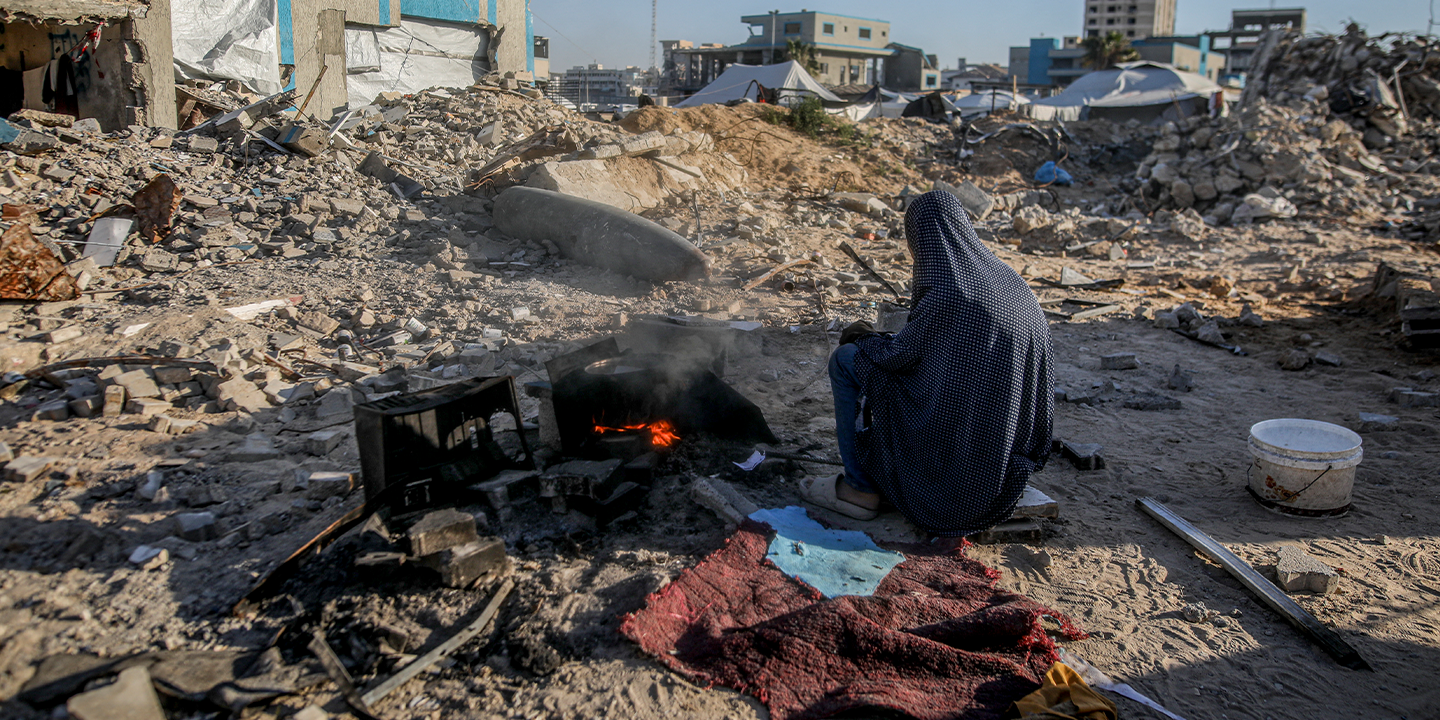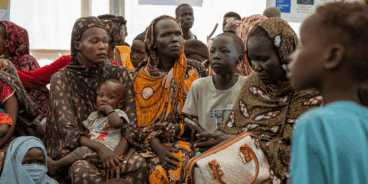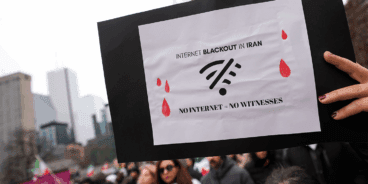

Atrocity Alert No. 438: Israel and the Occupied Palestinian Territory, Mali and Myanmar (Burma)
Atrocity Alert is a weekly publication by the Global Centre for the Responsibility to Protect highlighting situations where populations are at risk of, or are enduring, mass atrocity crimes.
ISRAEL MOVES TO SEIZE TERRITORY AND CONTROL AID IN GAZA
On 4 May Israel’s security cabinet approved a plan to expand its military assault on Gaza. The plan would include the gradual seizure of the entire Gaza Strip, indefinite occupation, the forcible transfer of Palestinians southward and the imposition of an Israeli-controlled humanitarian aid distribution mechanism. Tens of thousands of Israeli reservists have been called up to conduct the next phase of the military plan, allegedly timed to coincide with a visit to the Middle East by United States President Donald Trump in mid-May. If Hamas does not agree to Israel’s terms for a ceasefire before the visit, the expanded operation is anticipated to proceed.
This development comes as Palestinians in Gaza enter the third month under Israel’s reinstated total siege – an act Amnesty International determined as genocidal. Since breaking the ceasefire on 18 March, Israel has killed at least 2,459 Palestinians, displaced over 423,000 and restricted access to roughly 70 percent of Gaza. The siege and policy of mass starvation has increasingly rendered Palestinians in Gaza too malnourished to donate blood to treat the injured. Meanwhile, on 2 May a vessel carrying activists seeking to break the siege and deliver aid to Gaza was targeted by drone strikes in international waters off the coast of Malta.
Israel’s proposed humanitarian mechanism seeks to circumvent the current UN-led distribution system. It would allow only about 10 percent of the daily humanitarian aid trucks that were permitted during the ceasefire, require aid to pass through Israeli-appointed hubs in south Gaza and involve the deployment of US private security contractors. The mechanism would not only entrench Israel’s unlawful control over Gaza, but also violates the humanitarian principles of humanity, impartiality, neutrality and independence. On 4 May the Humanitarian Country Team, which includes the heads of several UN entities and international and Palestinian non-governmental organizations, issued a statement rejecting Israel’s proposed mechanism and its attempts to “reinforce control over life-sustaining items as a pressure tactic – as part of a military strategy.”
Over the last 19 months, third states have supported efforts to deliver humanitarian aid via airdrops, maritime corridors and through Israeli privatized delivery mechanisms, falling far short of addressing the core issue – Israel’s weaponization of aid. These piecemeal efforts ignore the scale of devastation, which demands unhindered land-based aid delivery, and are a failure of third states to meet their legal obligations to prevent and protect Palestinians from atrocity crimes.
States must resolutely denounce Israel’s military expansion, pressure it to reverse course and reject support for any alternative humanitarian mechanisms that sidestep international legal frameworks. Negotiated concessions with Israel cannot and do not replace the legal obligations of third states to prevent atrocity crimes. Governments must use all means at their disposal, including arms embargoes, to uphold their obligations under international law to prevent and punish genocide.
UN EXPERTS URGE INVESTIGATION INTO KILLINGS AND DISAPPEARANCES OF CIVILIANS IN MALI
On 12 April the Malian armed forces (FAMa) – accompanied by personnel from the Russia-backed Africa Corps (formerly Wagner Group) – allegedly arrested an estimated 100 men, mostly ethnic Fulani, at a market in Sébabougou, in the southwestern Kayes region of Mali. While some detainees were released shortly after, at least 60 others were reportedly transferred to the Kwala military camp in the Koulikoro region. At Kwala, detainees were reportedly tortured and interrogated about alleged links to armed Islamist groups before being executed.
Although the exact death toll remains unclear, a local community organization estimates that 65 people disappeared or went missing. Between 21 and 22 April relatives searching for loved ones discovered several dozen bodies near the military camp, believed to be those arrested in Sébabougou. The advanced state of decomposition made identification of the victims impossible.
The area where these events occurred, bordering Koulikoro, Nara and Nioro du Sahel, has long experienced clashes between the FAMa – alongside mercenaries – and the al-Qaeda-affiliated Group for the Support of Islam and Muslims. Persistent violence by these armed groups, along with the often-brutal security operations against them, has fueled cycles of abuse and retaliation. In March the UN Independent Expert on the human rights situation in Mali documented continued grave human rights violations and abuses by all armed actors operating in the country.
In a statement dated 28 April, the FAMa confirmed operations were conducted between 11-15 April in several areas, including Sébabougou and Kwala. They claimed to have “neutralised” numerous combatants from “terrorist armed groups.” Reports suggest these operations may have been retaliatory in nature, specifically targeting the Fulani community – an ethnic minority frequently accused by the government and communal militias of supporting armed Islamist groups.
These unlawful killings may amount to war crimes, while the enforced disappearances could constitute crimes against humanity if they are part of a widespread or systematic attack on civilians. On 30 April a group of UN experts condemned the alleged summary executions and enforced disappearances. The UN experts stated, “We are deeply troubled by the apparent total impunity and lack of prosecution or prevention of these violations attributed to both Malian defence and security forces, and foreign military and security personnel from the ‘Wagner’ Group and/or ‘Africa Corps.’”
The victims’ rights to truth, justice and reparations must be upheld. The Malian authorities, in collaboration with the Independent Expert and National Human Rights Commission, must conduct credible and impartial investigations into these atrocities, publish the findings and prosecute those responsible. All armed actors have an obligation to comply with International Humanitarian Law. Crimes targeting civilians, such as summary executions and enforced disappearances, are absolutely prohibited. FAMa and its allies should ensure counterterrorism operations are proportionate and non-discriminatory and the Malian authorities must do more to prevent further atrocities.
MYANMAR JUNTA LAUNCHED OVER 240 ATTACKS IN 1 MONTH DESPITE POST-QUAKE CEASEFIRE
On 2 May the UN High Commissioner for Human Rights, Volker Türk, released a statement expressing deep concern over the deteriorating situation in Myanmar (Burma) following devastating earthquakes that struck on 28 March. Despite a declared unilateral ceasefire on 2 April, the military junta reportedly launched at least 243 attacks, including 171 airstrikes, between 28 March to 29 April, killing at least 200 civilians.
High Commissioner Türk said, “The relentless attacks affect a population already heavily beleaguered and exhausted by years of conflict. This is compounded by the recent terrible earthquake that left 3,800 people dead and 6.3 million in urgent need of support, adding to the nearly 20 million already relying on assistance. International law is clear that humanitarian aid must be able to reach those in need without impediment.”
An investigation released on 29 April by Bellingcat, an independent investigative journalism group using open-source technology to document human rights abuses, documented the junta’s ongoing attacks on civilian areas in the aftermath of the earthquake. Of the 22 villages identified as having been struck since 28 March, 14 were in the Sagaing and Mandalay regions – the areas hardest hit by the earthquakes. The report found that multiple civilian objects, including homes, schools and religious buildings, were among those targeted during the strikes.
The attacks have compounded the already dire humanitarian situation across the country. The junta has also reportedly diverted or seized much of the aid intended for earthquake victims and survivors. These acts are further evidence of the junta’s pattern of utilizing natural disasters to divert aid and collectively punish populations in restive areas or in territory controlled by armed groups. Both targeted and indiscriminate attacks on civilians and civilian infrastructure, as well as the obstruction and denial of humanitarian aid, are prohibited under international law and may constitute war crimes.
On 30 April the UN Security Council held a private briefing on the crisis in Myanmar. While the meeting was a welcome development, the Council has only met publicly on the situation twice since April 2024, and no resolution has been adopted since December 2022 despite long-standing negotiations on a new text.
The Global Centre for the Responsibility to Protect’s Myanmar expert, Sarah Hunter, said, “The Security Council has a responsibility under the UN Charter to maintain international peace and security. Yet, in the face of one of the world’s most dire and evolving crises, the Council remains deadlocked – meeting mostly behind closed doors. It is long past time for the Council to overcome its divisions and adopt a robust resolution that provides a clear path toward accountability for atrocities in Myanmar.”
Related Content


Atrocity Alert No. 467: South Sudan, Israel and the Occupied Palestinian Territory and Venezuela
